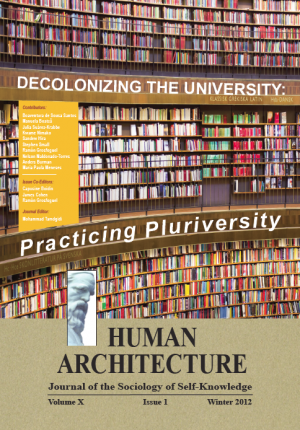Journal Article — Pragmatism and ‘Engaged’ Buddhism: Working Toward Peace and a Philosophy of Action — by Michael C. Adorjan and Benjamin W. Kelly
$15.00
Thich Nhat Hanh, a Vietnamese Buddhist monk, has advocated for an ‘engaged’ Buddhism since the 1960s. This paper explores Hanh’s concept of ‘inter-being’ as a philosophy of action.
Description
Abstract
Thich Nhat Hanh, a Vietnamese Buddhist monk, has advocated for an ‘engaged’ Buddhism since the 1960s. This paper explores Hanh’s concept of ‘inter-being’ as a philosophy of action. Often attempts to understand Eastern spirituality and practice are distorted by an occidental standpoint. Marx’s own attempts to understand Eastern modes of production have been accused of being ‘orientalist’, and it remains a challenge to Western sociologists to let Eastern standpoints represent themselves. Nhat Hanh challenges Western views which juxtapose self and society, yet recognizes that taking steps towards solving some of humanity’s greatest crises necessitates recognizing the individual’s ability to affect worldwide systemic change. Nhat Hanh’s ‘engaged Buddhism’ stands as a unique approach, even within Buddhism, to address and ameliorate suffering both at the individual and collective levels. We compare engaged Buddhism with American pragmatism, suggesting that Hanh’s vision is essential to addressing over-simplified dialectics such as body/mind, self/society, and personal/aggregate transformation.’
Recommended Citation
Adorjan, Michael C., and Benjamin W. Kelly. 2008. “Pragmatism and ‘Engaged’ Buddhism: Working Toward Peace and a Philosophy of Action.” Pp. 37-50 in Thich Nhat Hanh’s Sociological Imagination: Essays and Commentaries on Engaged Buddhism (Human Architecture: Journal of the Sociology of Self-Knowledge: Volume VI, Issue 3, 2008.) Belmont, MA: Okcir Press (an imprint of Ahead Publishing House).
The various editions of this issue of Thich Nhat Hanh’s Sociological Imagination: Essays and Commentaries on Engaged Buddhism can be ordered from the Okcir Store and are also available for ordering from all major online bookstores worldwide (such as Amazon, Barnes&Noble, and others).
Read the Above Publication Online
To read the above publication online, you need to be logged in as an OKCIR Library member with a valid access. In that case just click on the large PDF icon below to access the publication. Make sure you refresh your browser page after logging in.








